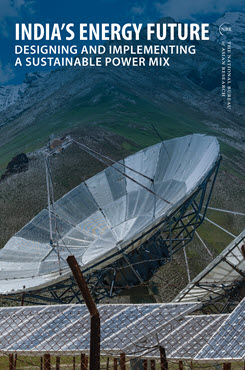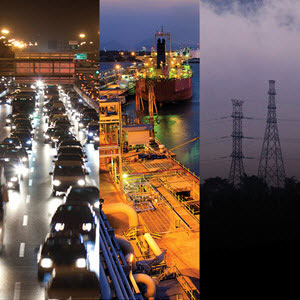The Potential of Distributed Energy Resources for India’s Energy Security
This essay examines the role that distributed energy resources can play to ensure that India’s transition to a cleaner energy mix is sustainable and affordable and considers policy options to achieve this goal.
EXECUTIVE SUMMARY
MAIN ARGUMENT
Clean energy transitions are underway in India to meet international climate commitments and improve overall energy security in the country. This progress has come through massive deployment of renewable energy technologies and solutions mostly at the grid level. Distributed energy resources (DERs) hold great potential to address the challenges of India’s energy security and make this transition more reliable, affordable, and sustainable. In addition to improved access, these distributed systems can bring the benefits of reliability to key sectors such as healthcare and agriculture. This untapped potential will require investment and administrative reforms, alongside existing government support. Such reforms could take full advantage of disruptive distributed technologies to ensure reliability and affordability for both consumers and utilities.
POLICY IMPLICATIONS
- Besides reducing emissions, DERs could provide socioeconomic and environmental benefits over large-scale, grid-level sources, including increased employment opportunities and reliability during storms or the ongoing pandemic.
- The Indian government must continue to expand existing efforts in support of private- sector initiatives to ramp up DERs by improving access to financing and removing regulatory hurdles.
- Coupling DERs to key sectors, such as health and agriculture, and modernizing the electricity distribution system could allow India to take full advantage of these disruptive technologies.
Astha Gupta is an India consultant for the International Energy Agency, a role in which she focuses on clean energy transitions in emerging economies. She previously worked at The Energy Resources Institute (TERI), where she focused on renewable energy policy research, decentralized clean energy solutions, and the assessment of bioenergy potential for industrial applications. She was also a 2020–21 Asia EDGE Fellow with the National Bureau of Asian Research.



 Toward Energy and Climate Security: Pathways and Priorities for Cooperation in 2022
Toward Energy and Climate Security: Pathways and Priorities for Cooperation in 2022
